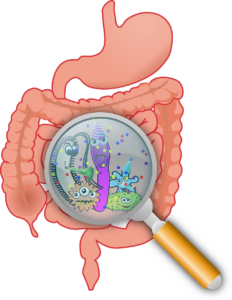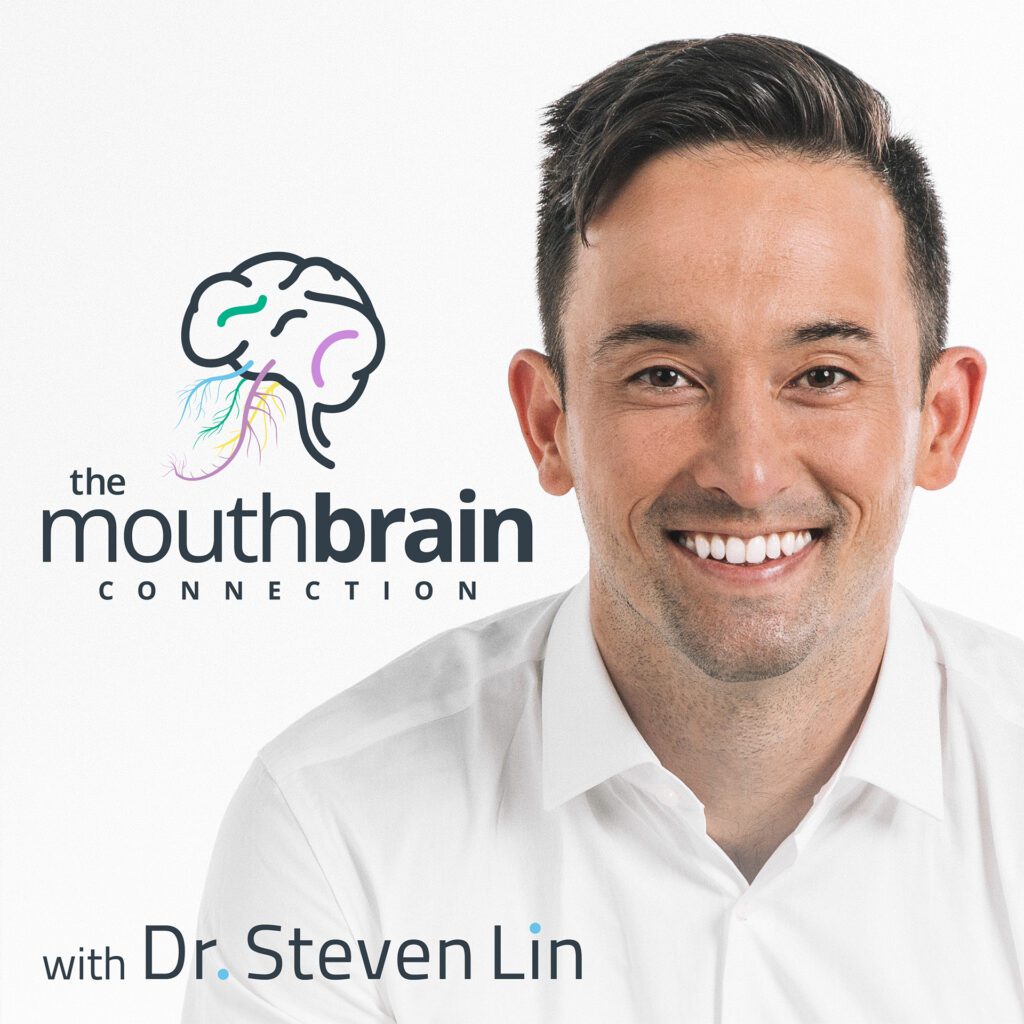While we’ve long recognized the importance of oral health and gut health separately, a fascinating concept is emerging in the world of medicine and wellness: the Mouth-Gut Axis.
This theory suggests that there’s a deep and intricate connection between the health of your mouth and the health of your gut, and understanding this relationship could be the key to unlocking better overall health.
What Is the Mouth-Gut Axis?
The Mouth-Gut Axis is a fresh perspective on the dynamic relationship between oral and gut health. It suggests that the state of your mouth, including oral bacteria balance and gum health, has a far-reaching impact on your gut health, and subsequently, your entire body’s well-being.
The Oral Microbiome: Where It All Begins:
The mouth houses a diverse ecosystem of microorganisms known as the oral microbiome. This community includes various bacteria, viruses, and fungi, crucial for oral health. Imbalances in this microbiome due to factors like diet or antibiotic use can lead to not only dental issues but also broader health implications.
The gut, often dubbed the “second brain,” hosts a vast and complex microbiome responsible for various functions, from digestion to immune regulation. This gut microbiome is a key player in overall health.

Connecting the Dots: How the Mouth Affects the Gut
So, how does what’s happening in your mouth impact your gut? This relationship goes both ways, as imbalances in the gut microbiome can also impact oral health. For example, gut issues can lead to inflammation in the mouth, emphasizing the interconnectedness of our body’s systems.
Here’s how the Mouth-Gut Axis works:
1. Bacterial Translocation:
Harmful oral bacteria can journey from your mouth to your gut when they cause gum disease or inflammation. This microbial expedition can disrupt your gut’s delicate balance. Now, here’s where it gets fascinating – these bacteria can venture beyond your oral realm and enter your bloodstream, a phenomenon known as bacteremia. This microbial expedition can lead them straight to your gut, potentially wreaking havoc on the delicate balance of your gut microbiome.
2. Inflammatory Response:
Inflammatory signals triggered by oral infections affect your gut lining, leading to “leaky gut syndrome.” Harmful substances can pass into your bloodstream, sparking systemic inflammation that can have far-reaching consequences.
3. Immune System Activation:
Your immune system orchestrates a complex interplay between your mouth and gut. Infections in one area can influence immune responses in the other, creating a harmonious yet intricate relationship.
4. Nutrient Absorption:
Poor oral health can hinder your ability to chew and digest effectively, potentially affecting the crucial task of nutrient absorption in your gut, leading to nutritional deficiencies.
Diet, Oral, and Overall Health
Dr. Steven Lin, a functional dentist and author of “The Dental Diet,” has extensively studied the relationship between oral health and overall well-being. Dr. Lin introduces the concept of “the oral-systemic connection”, which emphasizes that oral health is closely intertwined with the health of the entire body. In his book he explains how the mouth serves as a window into one’s overall health, with dental issues often being early indicators of more significant health problems.
His book emphasizes the importance of consuming a diet that is in harmony with our evolutionary history and natural dental development. Dr. Lin argues that our modern diets, filled with processed foods and refined sugars, have led to a rise in dental issues, such as cavities and misaligned teeth. He connects these dental problems to a range of systemic health issues, including cardiovascular disease, diabetes, and even sleep disorders.

Dr. Steven Lin explores how the right nutrients and vitamins can support strong teeth and proper jaw development from infancy through adulthood.
In his book he explains how modern feeding practices, such as bottle-feeding and the early introduction of soft, processed foods, can negatively impact jaw development and lead to issues like crowded teeth and sleep apnea.
He emphasizes that this dietary approach not only supports oral health but also promotes overall well-being. Here are some key aspects of the diet he recommends:
-
Primal Diet: Dr. Lin suggests that our diets should align with the evolutionary history of our species. He advocates for a diet similar to what our hunter-gatherer ancestors might have consumed, often referred to as a “primal” or “Paleolithic” diet. This diet includes foods that are minimally processed and more in line with what our bodies have evolved to digest.
-
Proteins: Include sources of protein such as poultry, fish, beef or pork.
-
Fats: Choose healthy fats from sources like avocados, nuts, seeds, olive oil, and fatty fish.
-
Dairy: If tolerated, opt for full-fat, fermented dairy products like yogurt or kefir. Some individuals may need to limit or avoid dairy due to lactose intolerance or other sensitivities.
-
Bone Broth: Dr. Lin highlights the benefits of bone broth, which is rich in collagen, minerals, and amino acids that support oral health and gut health.
-
Organ Meats: Organ meats, such as liver, are encouraged due to their exceptional nutrient density. They are excellent sources of vitamins and minerals, including vitamin A and iron.
-
Vegetables: Emphasize colorful, non-starchy vegetables rich in vitamins, minerals, and antioxidants.
-
Fruits: Consume a variety of fruits in moderation, focusing on those with lower sugar content.
-
Fermented Foods: Incorporate fermented foods like sauerkraut, kimchi, and kefir into your diet to support a healthy gut microbiome and improve digestion.
Limit Sugar and Processed Foods: One of the central principles of the dental diet is to limit or eliminate processed foods and added sugars. Excessive sugar consumption is linked to tooth decay and systemic inflammation.
Avoid Inflammatory Foods: Reduce or eliminate foods that can promote inflammation, such as refined grains, vegetable oils high in omega-6 fatty acids, and processed foods containing artificial additives.
Hydration: Stay well-hydrated by drinking plenty of water throughout the day. Water helps maintain oral health by preventing dry mouth, which can contribute to tooth decay.
Chewing: Encourage the use of jaw muscles by consuming foods that require chewing. This can help promote proper jaw development and alignment.
Meal Timing: Dr. Lin also discusses the importance of meal timing and how grazing or snacking throughout the day may not be conducive to optimal oral health. Instead, he suggests sticking to regular meal times and allowing the mouth time to recover between meals.
How to Support the Mouth-Gut Axis for Better Health
Now that we understand the significance of the Mouth-Gut Axis, how can we take steps to support it?
Here are some tips:
- Maintain Good Oral Hygiene: Regular brushing, flossing, and dental check-ups are essential for a healthy mouth. This helps prevent the overgrowth of harmful bacteria.
- Eat a Balanced Diet: A diet rich in nutrients dense foods, organic whole foods, organ meats, and probiotics can promote a healthy gut microbiome and, indirectly, support oral health.
- Manage Stress: Chronic stress can disrupt the balance of the gut microbiome. Practices like meditation and stress management can help.
- Avoid Excessive Antibiotic Use: While antibiotics are sometimes necessary, their overuse can disrupt the gut microbiome. Use them only as prescribed by a healthcare professional.
- Consider Probiotics: Probiotic supplements or probiotic-rich foods may help maintain a balanced gut microbiome.
- Stay Hydrated: Drinking enough water helps maintain saliva production, which plays a role in oral health.
In Conclusion:
The Mouth-Gut Axis is an exciting frontier in health and wellness research, highlighting the intricate connection between oral health and gut health. Understanding this relationship can empower us to make informed lifestyle choices that promote better overall health. By prioritizing good oral hygiene, a balanced diet, and practices that support gut health, we can take significant steps toward unlocking the secrets of a healthier, happier life.
Remember, the journey to better health begins in your mouth and travels all the way to your gut—a journey well worth embarking on.
If you have concerns about your mouth, teeth, tongue or jaw and their impact on your health, it’s advisable to consult with a Functional Medicine doctor or Biological dentist for guidance and potential interventions.
